
A mother who died unexpectedly, a chance encounter with a snail biologist, a patient whose hands were so swollen that she could barely take care of her newborn. Inspiration often comes from unexpected places, a theme that reverbrated throughout University of Utah Health Science’s annual Vitae. This year’s event spotlighted six star junior faculty who captivated the crowd with stories of their science, and how they got to where they are today.
K-T Varley, PhD, Assistant Professor, Oncological Sciences, Huntsman Cancer Institute Investigator
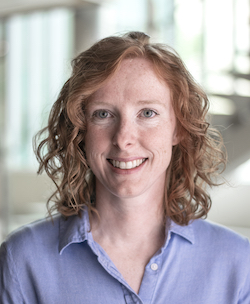
Personal Statement
Breast cancer has been at the crest of the personalized medicine wave, and breast cancer patients have been among the first to benefit from risk-based screening, molecular sub-typing, targeted therapy and prognostic clinical tests. Despite tremendous progress, many women like my mother still experience unexpected recurrences, develop therapy-resistant disease and die of aggressive metastases. By developing and using new genomic technologies, we can accelerate both the process of discovery and the speed at which those discoveries are translated into real treatments.
"New Technologies to Fill Old Gaps in Personalized Breast Cancer Care"
We are developing a prognostic gene expression test for patients with an aggressive form of breast cancer and testing therapeutic strategies to force poor-prognosis tumors to express good-prognosis immune pathways. We are also developing a blood test for breast cancer that can detect recurrence early and predict therapy resistance. By using new genomic technologies to fill gaps in our knowledge we can deliver the benefits of personalized breast cancer care to more patients.
Research Ambitions
My goals are to use new genomic technologies to fill gaps in our knowledge of breast cancer and to develop clinical tools that enable the delivery of personalized care to more women.
Michelle Mendoza, PhD, Assistant Professor, Oncological Sciences, Huntsman Cancer Institute Investigator
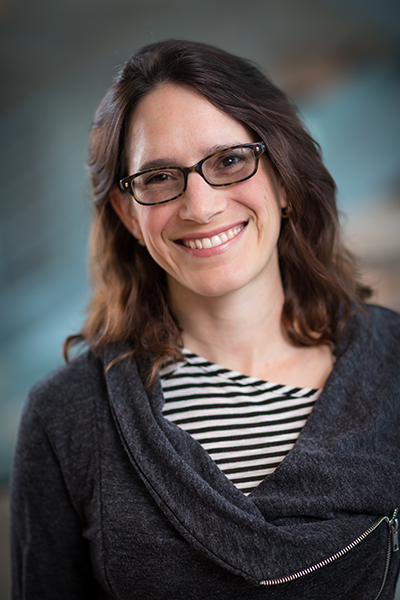
Personal Statement
I love puzzles, and understanding the molecular signals that dictate cell behavior is one giant puzzle. My lab is teasing out the complex signals that control cell movement. This is a particularly fun question, as much of our knowledge is derived from watching cells in motion and tracking fluctuations in their morphology and molecular components. It’s also a particularly pertinent question, as common cancer mutations un-regulate these very same signals. We are translating our discoveries to cancer models to identify the critical connections driving cancer spread.
"Red Light, Green Light: Understanding How Our Cells Put On the Brakes and Step On the Gas”
Research Ambitions
To understand the molecular signals that control cell motility so that we can develop improved cancer therapies to reduce tumor spread and dissemination.
Danny Chou, PhD, Assistant Professor, Biochemistry
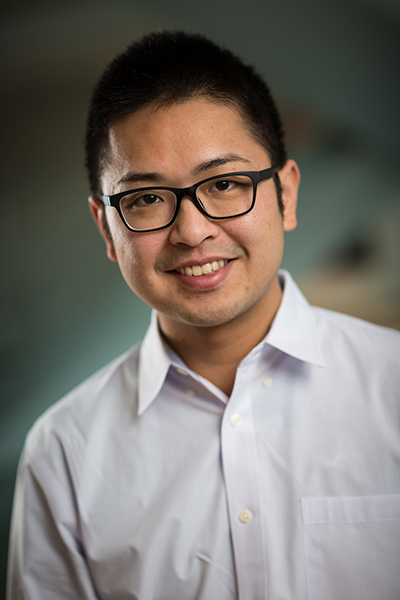
Personal Statement
I never thought about pursuing a career in scientific research until after high school when I learned that I enjoy creating new molecules to make our world even better. The summer before my freshman year of college, I worked in an organic materials lab, synthesizing a series of UV light-emitting materials for LEDs. This experience prompted me to choose a major in chemistry and become a synthetic organic chemist with the super power of generating new molecules.
"Pursuit of Perfect Insulin: Nearly a Century After its Discovery”
Since graduate school, I have been designing and creating potential molecules to treat diabetes, first using small molecules and now focusing on insulin. At Utah, my lab has multiple projects on engineering insulin, a life-saving protein, into an even better therapeutic for people with diabetes. We design new kinds of insulin based on inspirations from patient need, physiological insights and even fish-hunting cone snails. By doing all this, we hope that one day people with diabetes will never need to worry about their daily blood sugar fluctuations and long-term disease complications.
Research Ambitions
My lab designs and engineers insulin to give people with diabetes an improved quality of life.
Adam Spivak, MD, Assistant Professor, Internal Medicine
Personal Statement
Combination antiretroviral therapy has transformed HIV infection from a progressive and lethal infection to a manageable chronic condition. As an HIV physician, I have the privilege to encounter patients with life-threatening immune deficiency and care for them as they regain their health. While these drug combinations represent a pioneering achievement for modern medicine, they are not curative. A tiny fraction of the virus is able to lie dormant in some of our most long-lived cells and persist despite ongoing treatment. My research focuses on ways to re-awaken this persistent viral reservoir so that it can be recognized and targeted by the immune system. As a physician scientist, my career objective is to improve upon the management of HIV infection by exploring the nature of viral persistence and potential means to address it clinically.
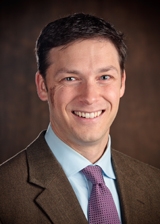
"Novel Approaches to Eradicate HIV”
Research Ambitions
I aim to identify novel means to reactivate the viral latent reservoir and engage the immune system in order to achieve a functional cure for HIV-infected patients.
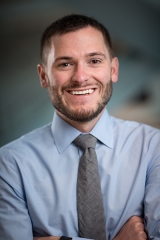
Adam Bress, PharmD, MS, Assistant Professor, Population Health Sciences
Personal Statement
Growing up in Baltimore with parents in health care, I saw what medicine could do, and the racial disparities that existed in health. I was formally trained as a cardiovascular clinical pharmacist and received additional research training in epidemiology, biostatistics and pharmacogenetics. With my love of science, data and genetics, I became a population scientist with a research portfolio motivated by social justice and focused on disparities in the prevention and treatment of cardiovascular disease.
“How Do Pharmacoepidemiology and Pharmacogenetics Help Us Understand Health Disparities?”
My lab uses pharmacoepidemiology (drug effects in populations) and population pharmacogenetics (genetic causes of variable drug effects) to understand the complex issues surrounding the social and genetic constructs of race and racial/ethnic differences in medication responses and outcomes. We apply these findings to understand the population-level impact, generalizability and cost-effectiveness of cardiovascular disease treatment in racially diverse groups.
Research Ambitions
To eliminate health disparities by precisely identifying the genetic and sociocultural aspects of race, making precision medicine more equitable and driving towards better population health.
Tracy Frech, MD, MS, Associate Professor, Internal Medicine
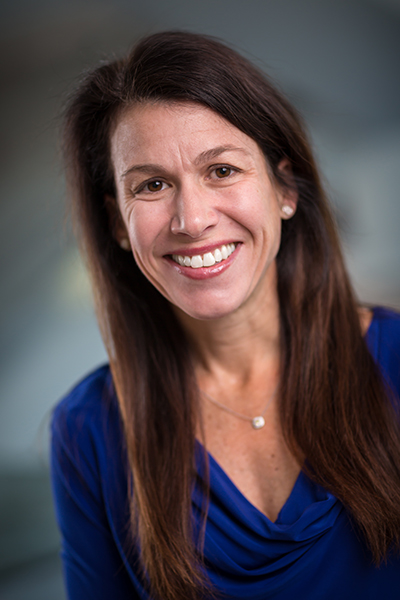
Personal Statement
I am driven by the opportunity for team science, which can improve patient care and translational science discovery in rare disease. My research area is systemic sclerosis (SSc, scleroderma). I chose this area because I was impressed during my fellowship training by how little we know about its pathogenesis and treatment. My research ambitions are to develop evidence based SSc treatment algorithms that focus on prevention and improving outcomes. I also would like to build the largest national registry for gastrointestinal samples for this disease. I believe this is possible with a fantastic collaborative team.
"Adventure in Science”
Research Ambition
To develop evidence based SSc treatment algorithms that focus on prevention and improving outcomes.